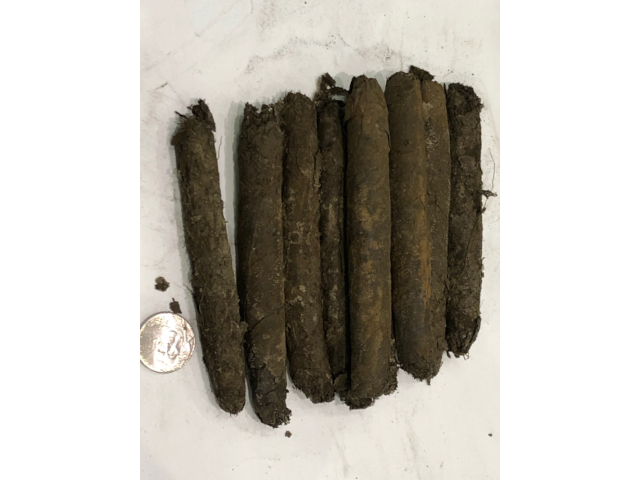- Delhi Comes Alive with 'Voice of Colors' artist camp 2024 by Sahitya Kala Parishad
- ezPaycheck: Simplified In-house Payroll Solution Adds New e941 Feature for 2024
- Luxe Transfers LTD Launches Premier Luxury Chauffeur Services in Birmingham and Beyond
- Loren James Dance Company Revolutionises Dance Education with Premier Dance Schools in Cardiff
- Zee MPCG’s ‘Building New India’ Conclave Paves the Way for Madhya Pradesh’s Bright Future
- PerfectionGeeks Revolutionizes Mobile Solutions as a Leading Flutter App Development Company in Spain
- Items from The Merrill House in Natchez, Miss., are in Crescent City's January 17-18 Estates Auction
- Tajurba Business Network Hosted a Successful SME IPO Workshop, empowering over 100 SMEs
- Bangalore Hospitals Introduces India's First 640-Slice CT Scan
- Honda Motorcycle & Scooter India launches New 2025 SP125 - ‘Be Bold, Be Advanced’
- Protheragen-ING Releases Hundreds of APIs: Anti-Tumor APIs, Hypoglycemic APIs, Antipsychotic APIs, Bronchiectasis APIs, Antihypertensive APIs
- SunTec India Named Among Leading SEO Companies in the US by SuperbCompanies
- Urimai Kural Drivers Trade Union urges government to reconsider GST on SaaS model to protect drivers’ livelihoods
- CD Formulation Announces Festive Discounts: 5%-15% Off on All Products and Services
- Al Faizan Brings Top-Tier Silver Plating Expertise to Dubai’s Thriving Market
 Mail to a Friend Mail to a Friend |
|
     |
Cuban Cigars Recovered from The S. S. Central America will be Auctioned March 4th-5th in Reno, Nev

Reno, NV, February 21, 2023 -- Three dozen 166-year-old Cuban cigars will be in an auction of never-before-offered, historic California Gold Rush-era artifacts recovered from the 1857 sinking of the fabled ?Ship of Gold,? the S.S. Central America. The auction will be held on March 4 and 5, 2023 in Reno, Nevada and online by Holabird Western Americana Collections, LLC (www.HolabirdWesternAmericana.com).
?Thirty-seven Cuban cigars, apparently brought on board when the ship stopped in Havana on the voyage from Panama to New York, were found in a passenger?s trunk on the Atlantic Ocean seabed in 1991. Some of their wrappers are still in excellent condition. This is the first time these vintage cigars are being offered,? said Fred Holabird, President of Holabird Western Americana Collections.
?Imagine having a Havana-rolled cigar made when Abraham Lincoln was a Senator,? said Dwight Manley, Managing Partner of California Gold Marketing Group, the consignor of the sunken treasure.
The S.S. Central America was carrying tons of Gold Rush treasure from San Francisco and the northern California area when she sank 7,200 feet deep in the Atlantic off the North Carolina coast in a hurricane while on a voyage from Aspinwall, Panama to New York City in September 1857. Recovery from the shipwreck site occurred in several stages between 1988-1991 and again in 2014.
The cigars were discovered in 1991 in the recovered trunk of first-class passenger John Dement, a merchant, miner, and military veteran from Oregon City, Oregon, packed next to the oldest known Gold Rush miner's work pants that sold for a record $114,000 in the first auction of S.S. Central America artifacts this past December.
?The cigars are a true wonder, no doubt, and it is quite counterintuitive that they would survive 134 years in the deep sea. A real curiosity,? said Bob Evans, Chief Scientist of the S.S. Central America Project who was on each of the recovery missions.
How did they survive?
?It is cold on the S.S. Central America shipwreck site, a very consistent 2 to 3 degrees centigrade (about 37 degrees Fahrenheit). It is an environment with no light, high saline content, and around 3,200 pounds of pressure per square inch. Essentially, it is a dark, high-pressure, salty, deep-sea refrigerator,? he explained.
?The passengers? trunks found in the debris field around the main shipwreck site were not breached or opened, and although not watertight, the leather shell of the trunks limited water circulation. Soon after sinking, all the oxygen was used up, and anaerobic conditions prevailed for most of the 130+ years before two trunks were recovered, including Mr. Dement?s,? said Evans.
?When we opened the Dement trunk we saw a few dozen cigars that had been placed on top of clothes and other items. Soggy and limp, the cigars were carefully placed on a fiberglass screen and slowly freeze-dried over the next few months to preserve them.?
The March 4 and 5 auction of recovered artifacts also features California Gold Rush jewelry; men?s and women?s clothing including an early Brooks Brothers shirt; an 1851 Colt Navy pistol; bottles and tableware; and a large gold ingot from a prominent San Francisco assayer of the era.
There is also a mid-19th century daguerreotype metal plate photograph of a young woman that the scientific mission recovery team nicknamed, ?Mona Lisa of the Deep,? after retrieving the photo in 2014. It was discovered on the seabed in a scattered pile of the ship?s coal.
?The auction also offers recovered coal and portions of the S.S. Central America itself, including a porthole from what is believed to be Captain William Lewis Herndon?s topside cabin,? said Manley.
The tragedy of the S.S. Central America sinking took the lives of 425 of the ship?s 578 passengers and crewmembers, and the loss of the gold cargo was a major factor in the economically devastating financial Panic of 1857 in the United States.
Insurance claims for the loss were paid in the 1850s and the company that discovered and retrieved the treasure starting in 1988 settled with the insurers and their successors in 1992. With court approval, California Gold Marketing Group acquired clear title to all of that remaining treasure in 1999 as well as all the items recovered in 2014.
For additional information about the auction, visit Holabird Western Americana Collections of Reno, Nevada at www.HolabirdAmericana.com, call 775-851-1859, or email info@holabirdamericana.com.
Company :-Holabird Western Americana Collections, LLC
User :- Fred Holabird
Email :-fredholabird@gmail.com
Phone :-7758511859
Url :- https://www.holabirdamericana.com









